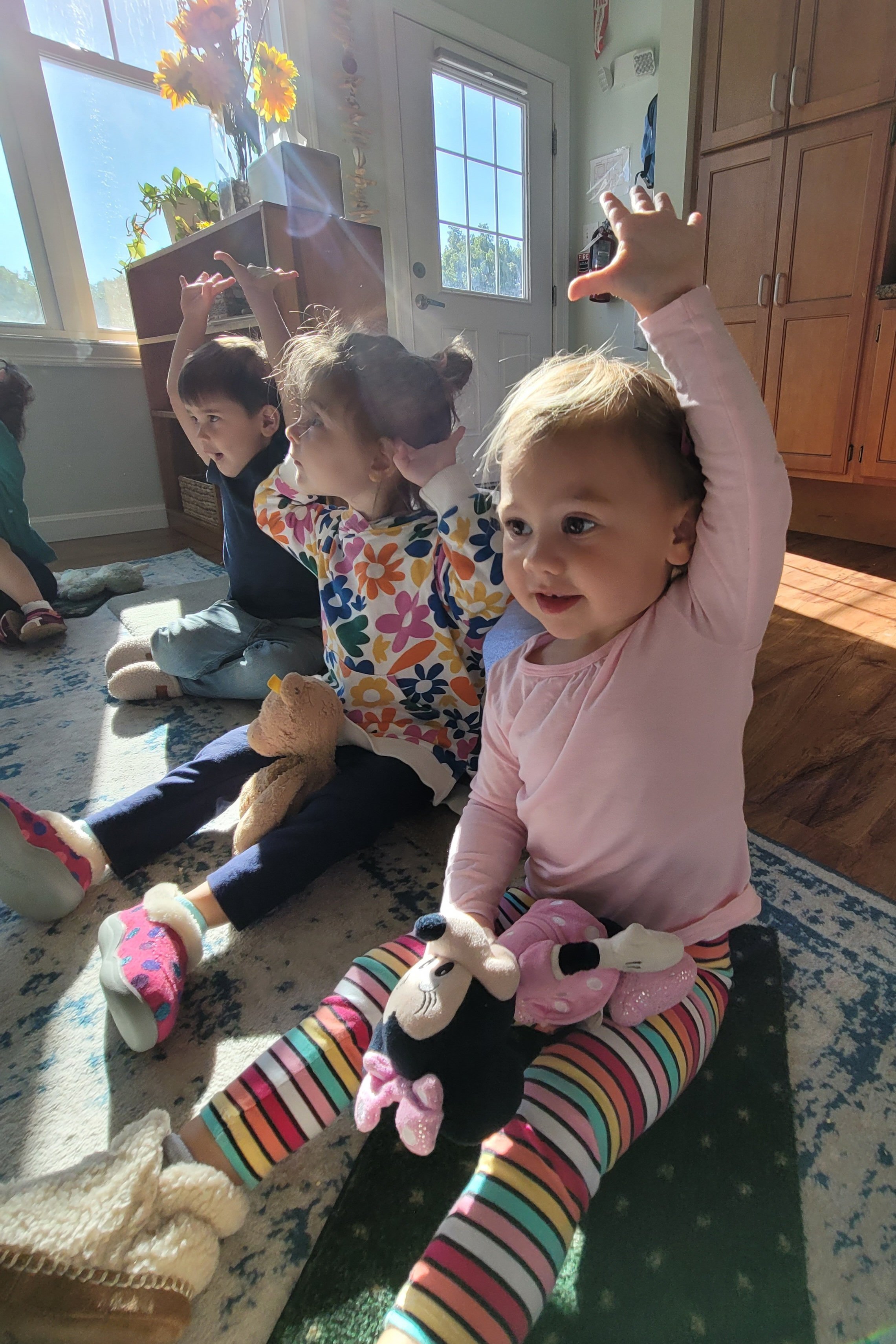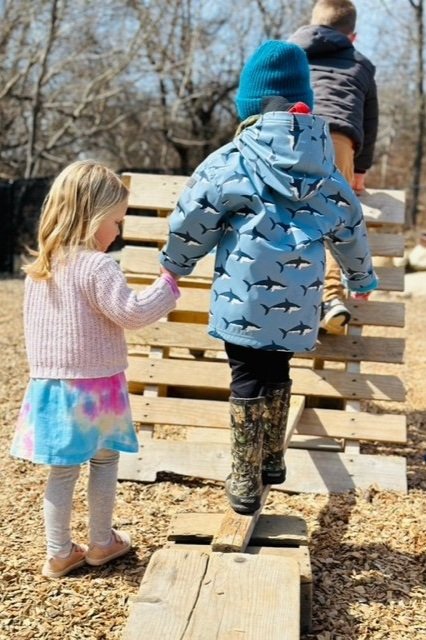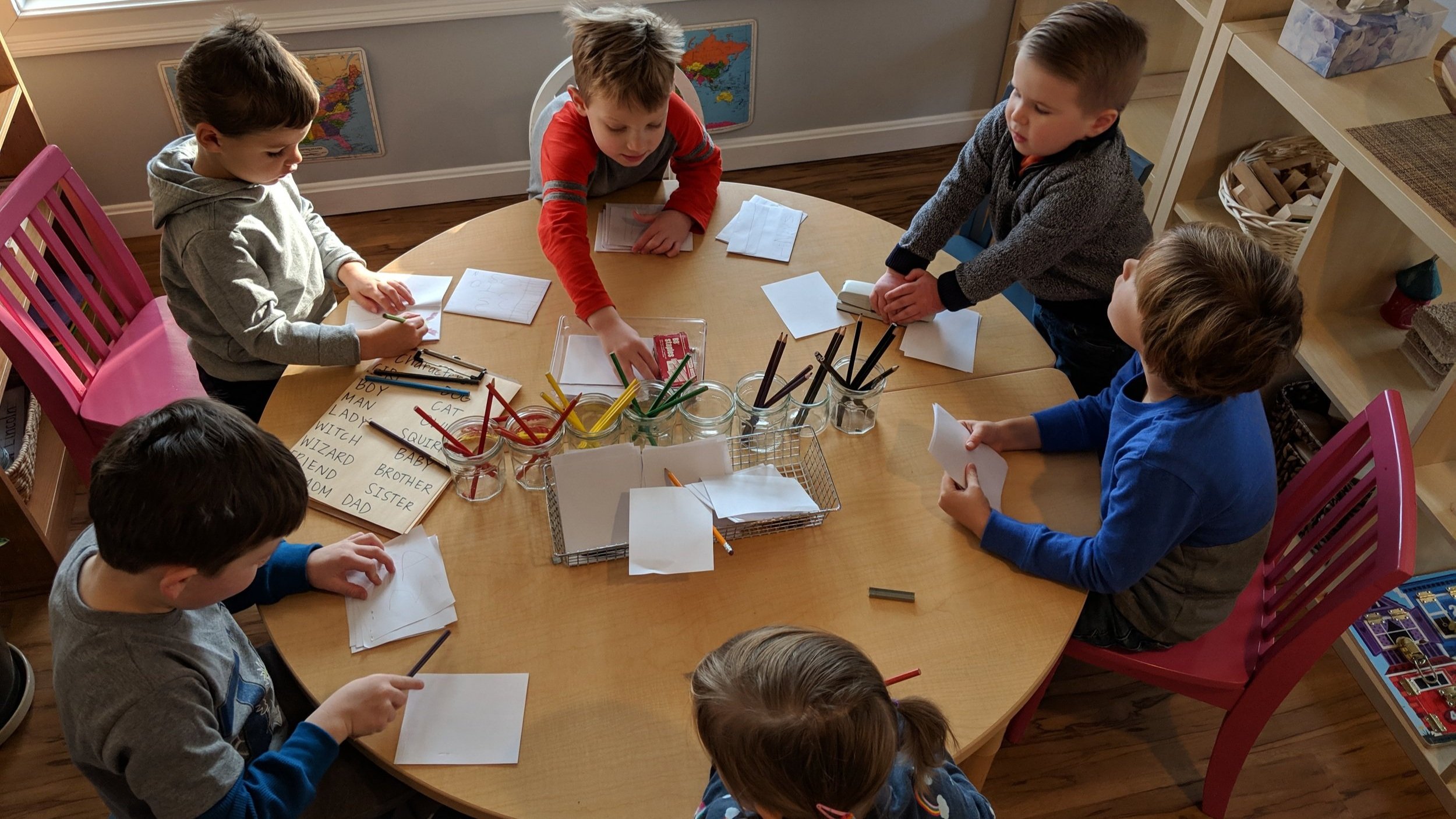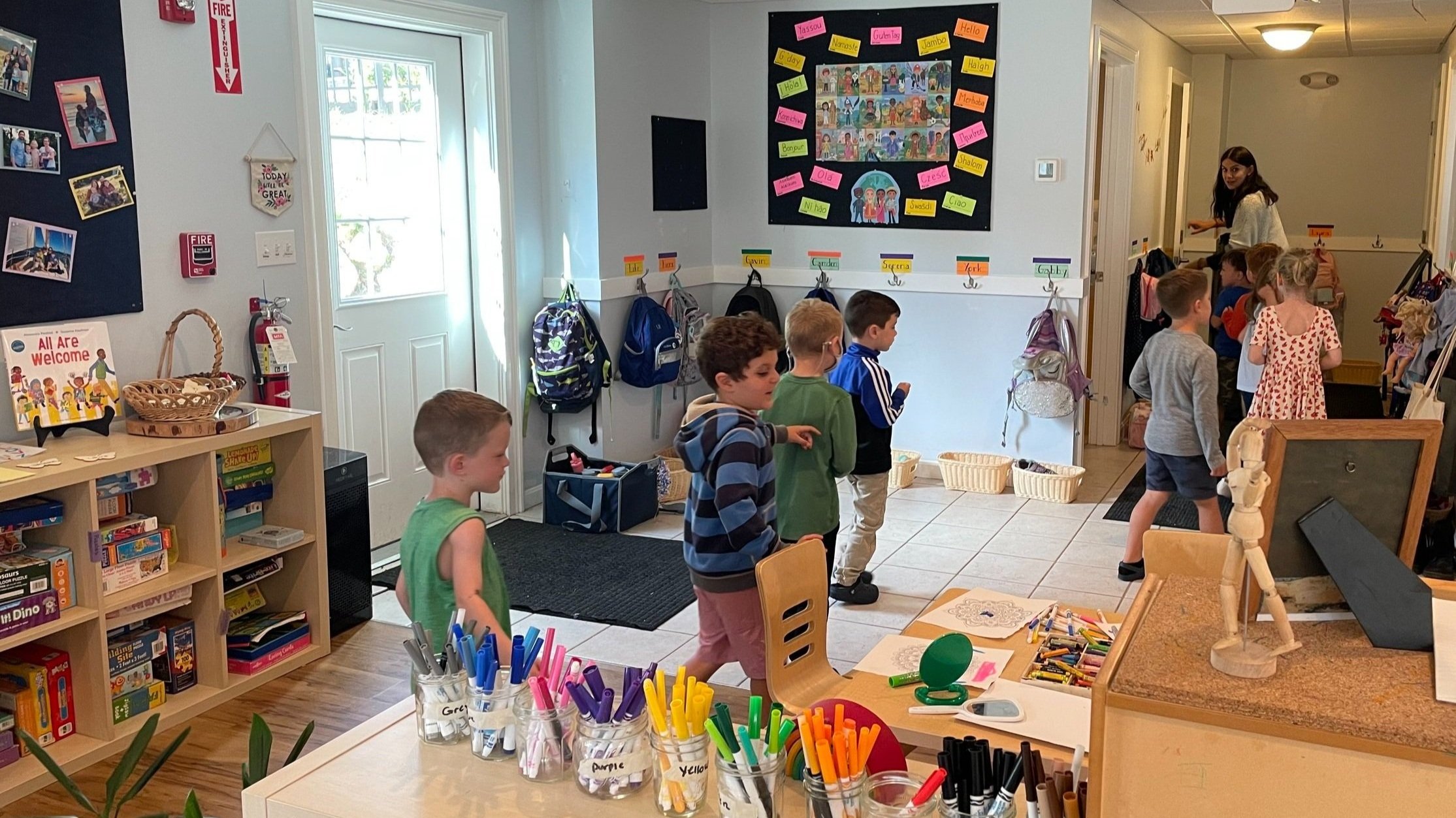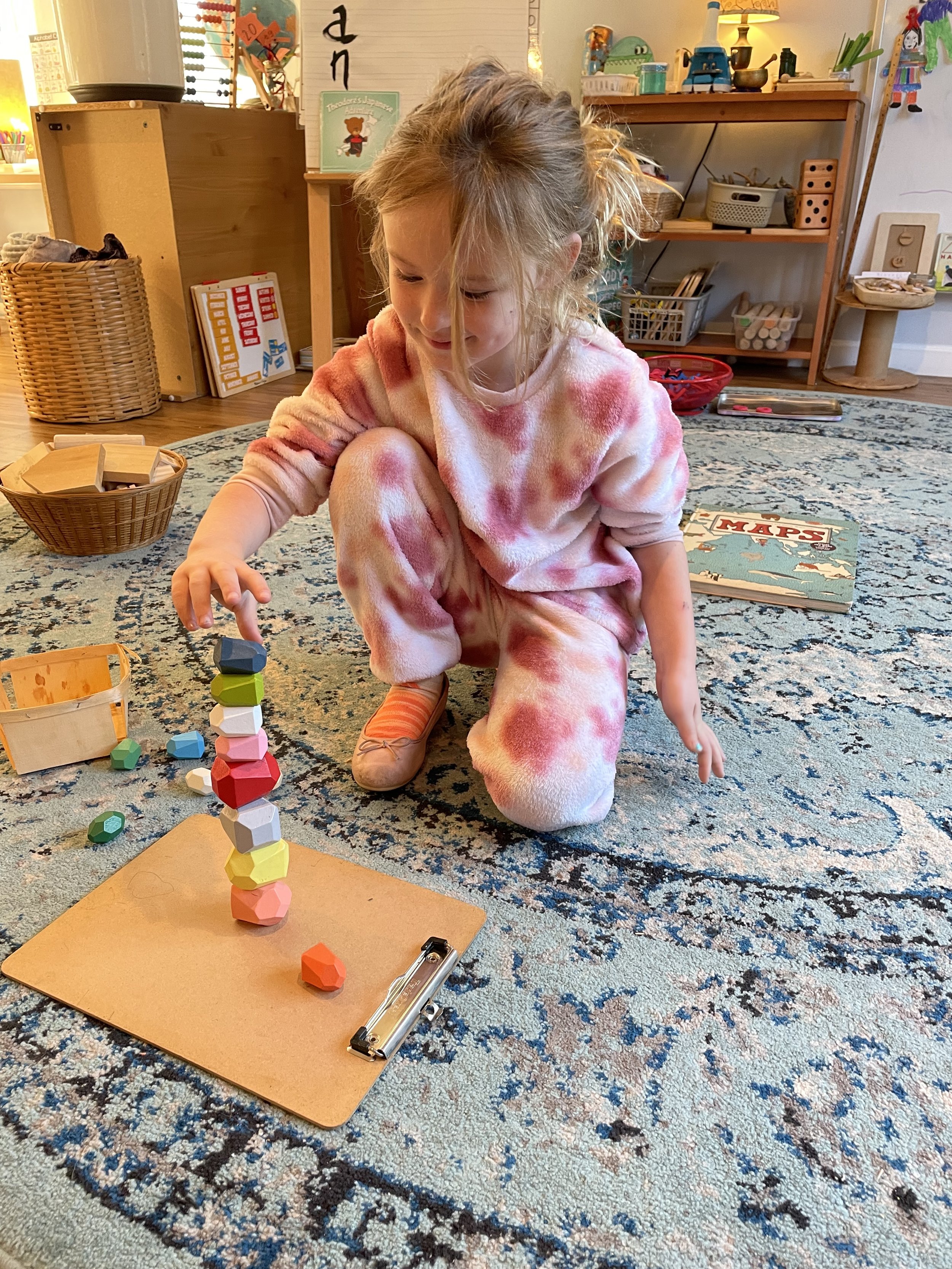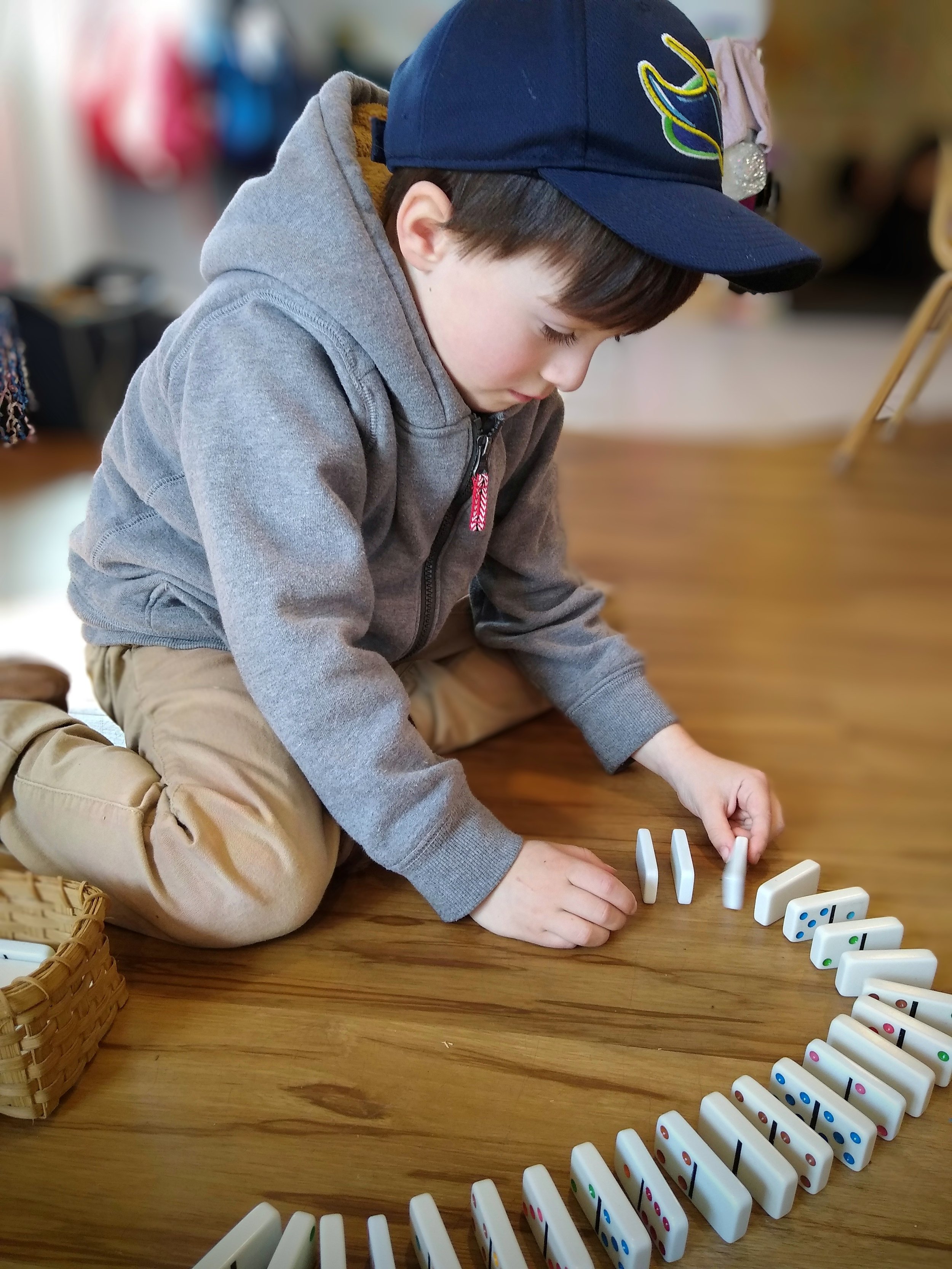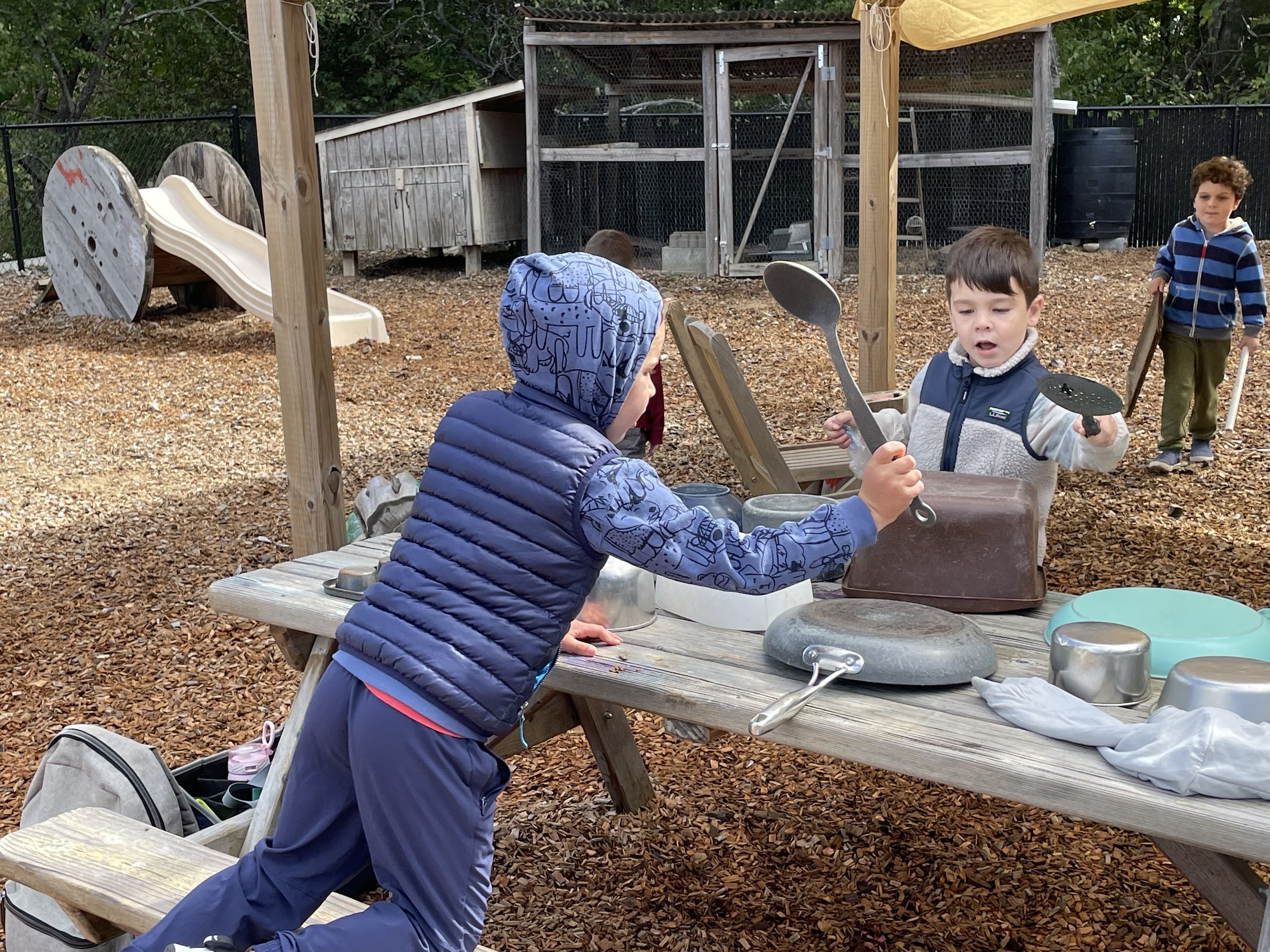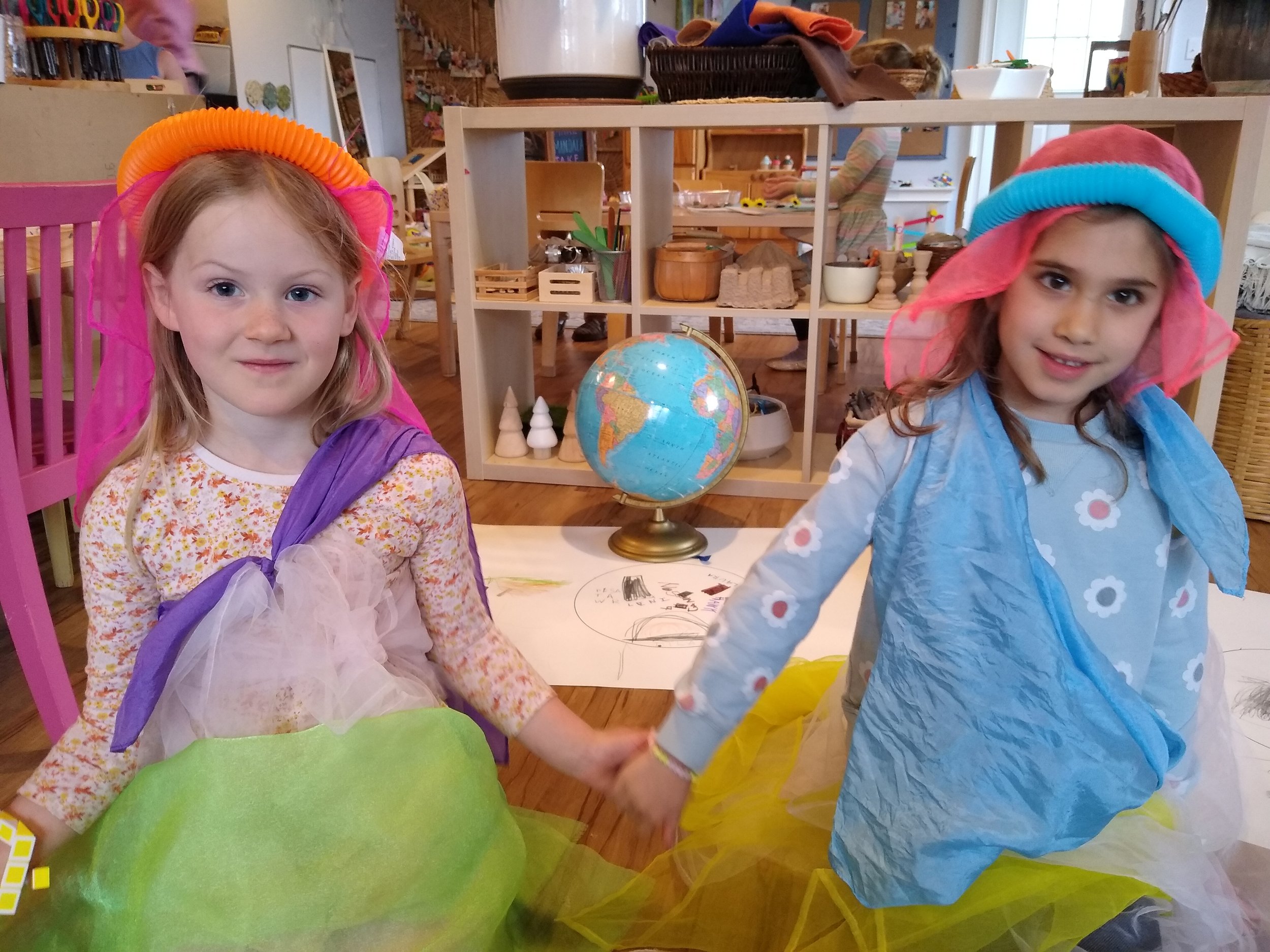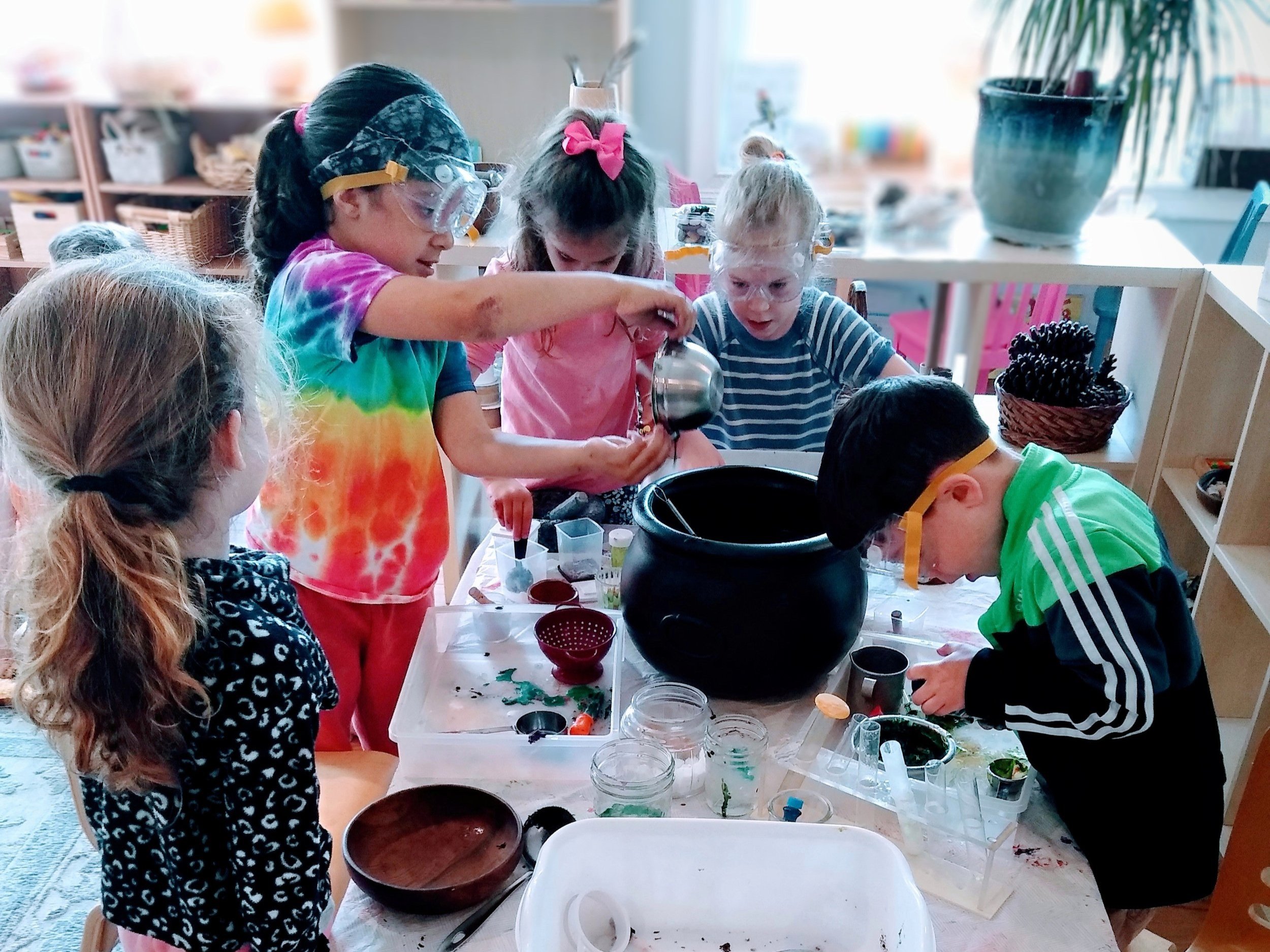Your Child’s Path To Kindergarten Readiness
What our Pre-K & Kindergarten Program is All About
When parents ask us whether their preschooler is progressing appropriately toward kindergarten readiness, they are often surprised that our response has little to do with academic skills. Though we present the basics of numbers, math, letters, reading, writing, and science to children age 2 and beyond, the true measure of kindergarten readiness comes from the social-emotional behavioral foundation your child is working to master every day throughout their preschool years.
Whether your children begin their Harmony experience at age 2 in our Transitional Preschool program, ages 3-4 in our Preschool program, or ages 4½-6 in our Pre-K & Kindergarten program, our primary focus as they learn through play is to develop their Social-Emotional Learning Skills—only once they have mastered these can they fully shift to Intellectual Academic Skill-Building.
Wherever your child lands in his or her development and readiness is perfectly ok. Every child progresses at a different pace, and is ready for the work of kindergarten at a slightly different age. We purposely structured our Pre-K & Kindergarten program to meet this reality—providing a warm, welcoming, inspiring environment and support system to embrace and guide each child through these last stages of social-emotional development at whatever pace they need, to ensure they emerge confident and primed to succeed in the next step of their educational journey.
Preschool versus Pre-K—What’s the Difference?
While preschool preps children for kindergarten in a broad sense, pre-k is quite literally defined as the final preparatory year before kindergarten. Due to varying school district entry age requirements, not every child is eligible for pre-k—which is why we feel pre-k is the gift of an extra year for kids to enjoy the playful freedom of early childhood education.
We created our Pre-K & Kindergarten classroom to provide an ideal bridge from preschool to elementary school—ensuring that wherever your children are in their kindergarten readiness, their final transition from play-based schooling toward a traditional academic setting will be smooth, meet them where they are, and provide them ample time to get their last wiggles out as they fine-tune any lingering social-emotional challenges and say farewell to their early education years.
What Does Kindergarten Readiness Look Like?
SOCIAL-EMOTIONAL LEARNING SKILLS TO WATCH FOR…
Respect Classroom Environment
When your child treats books carefully, gently plays with toys and puts them away when she’s done, and throws her garbage in the trash can, she is exhibiting respect for the classroom environment. Through this skill, your child demonstrates caring for shared spaces and materials so that other people can use them.
Self-Regulate & Cooperate
As children move beyond the inherent impulsivity of toddlerhood, they should be able to play cooperatively beside and with peers while keeping impulses largely in check.
Respond to Social Cues
While playing with classmates or sitting in close proximity during group time, does your child exhibit awareness of and concern for others? By the time pre-kindergarten arrives, he or she should recognize and respond appropriately to social cues. For example, when sitting in a circle, does your child know he shouldn’t lean on his neighbor? Or does he need to be reminded to look to his neighbor’s facial expression, body language, and tone of voice for cues?
Take Personal Responsibility
Can your child independently go to the bathroom, wash his hands, hang up his belongings on his personal hook, get dressed and undressed for the outdoors, find his seat, and generally navigate a classroom on his own?
Initiate Independent Play
Does your child independently approach and engage with play materials, develop play stories, and play with peers?
Concentrate
Is your child able to sit still, listen to instructions, and engage in extended periods of focused play? Deep levels of concentration teach children to persevere, problem-solve, and progress to more complex concepts and tasks. Concentration skills exhibited through play translate to eventual concentration skills in academic schoolwork.
Exhibit Confidence
When your child perseveres through challenges at play—engineering and re-engineering a structure until it stays up; trying again to draw a work of art just so—she is problem-solving, and exhibiting tolerance for and growth from failure. This display of grit is necessary for long-term success as a student.
Pre-K & Kindergarten at Harmony
We designed Harmony’s Pre-K & Kindergarten to be experienced as a 2-year, multi-age program, providing the naturally symbiotic relationship of older and younger classmates modeling for and supporting each other as they play and learn together.
Even in our Pre-K & Kindergarten classroom, we believe in allowing children ample time to just be kids. To spend an hour or more each day moving their bodies, exploring the outdoors, running, climbing, digging, pond-engineering, snow-fort-building, nature-observing, and on and on. Many children just need this kind of daily experience in their culminating early childhood years before moving on to a bigger elementary school—and we think that’s great. It’s why we created Harmony, and everything we do builds toward the final kindergarten year, when children’s early social emotional learning finally clicks into place and they’re primed to absorb intellectual academic concepts.
(Can you tell we find this to be a very exciting time in early childhood?)
Harmony’s Pre-K Track
Children who are 4½ by September 1 are ready to enter our Pre-K & Kindergarten classroom. Where they land in their kindergarten readiness will determine whether they are ready to fully absorb the intellectual academic kindergarten curriculum, but generally, children at this age begin on the pre-k track. Though they are exposed to the kindergarten curriculum our teachers present (detailed below), they have the option to engage in whichever activities inspire them, and play leads their days. Our teaching team observes and supports them as they progress through the final social-emotional skill-building steps they need to be ready to move on to the deeper intellectual work of kindergarten.
Harmony’s Kindergarten Track
Children who are at least 5 years old by September 1 enter this classroom on the kindergarten track. Our teachers intentionally guide kindergarteners through our play-based curriculum, ensuring they are completing every state-required academic skill-building activity. Because they’re older and have dedicated more attention to solidifying their foundational social-emotional skills, they know how to regulate their bodies.
And yet, if they are not yet exhibiting all kindergarten readiness skills not to worry—that’s why they’re at Harmony! They still receive individualized care and support to work on any social-emotional areas that may challenge them. Our ample time and space for body movement, our warm, home-like environment, our low student-teacher ratio, and our flexibility in allowing them to complete work on the floor, at a table, or outside combine to provide the support they need in these last moments before moving on to first grade.
Intellectual Academic Skill-Building
The primary focus for kindergarteners is the transition into the numeracy, literacy, writing, and science work of their coming elementary years. They spend their days learning to recognize, name, and represent numbers. They gain phonological, print, and story sequence awareness, and transition from the simple wondering of the preschool years to questioning, hypothesizing, researching, and concluding.
Our Pre-K & Kindergarten teachers introduce intellectual concepts during large group instruction and small group activities. Throughout the year, children generate their own story narratives during dedicated Story Workshop time—using miniature props, oral storytelling, and documenting work on paper via their emerging writing skills.
Gentle, relationship-based assessments are completed in the fall and spring for all kindergarteners. These assessments, carefully rooted in play and connection, simultaneously help teachers understand each student’s areas of strength and challenge while guiding classroom instruction.
Regardless of where your child lands as they approach the ages of Pre-K & Kindergarten, we have a home for them in our classroom. We welcome your questions as you consider your child’s next step—and would love to help him or her cross the final bridge as they leave their preschool years behind.
We’d love to see any Harmony-inspired moments you capture along your child’s early years journey. Tag us (@HarmonyNLC) on Facebook and Instagram, and use the hashtags #HarmonyNaturalLearningCenter #TheHarmonyApproach #HarmonyNLC
______________________________
Interested in introducing more of The Harmony Approach to your child at home? Check out Harmony at Home today (FREE activities available).


